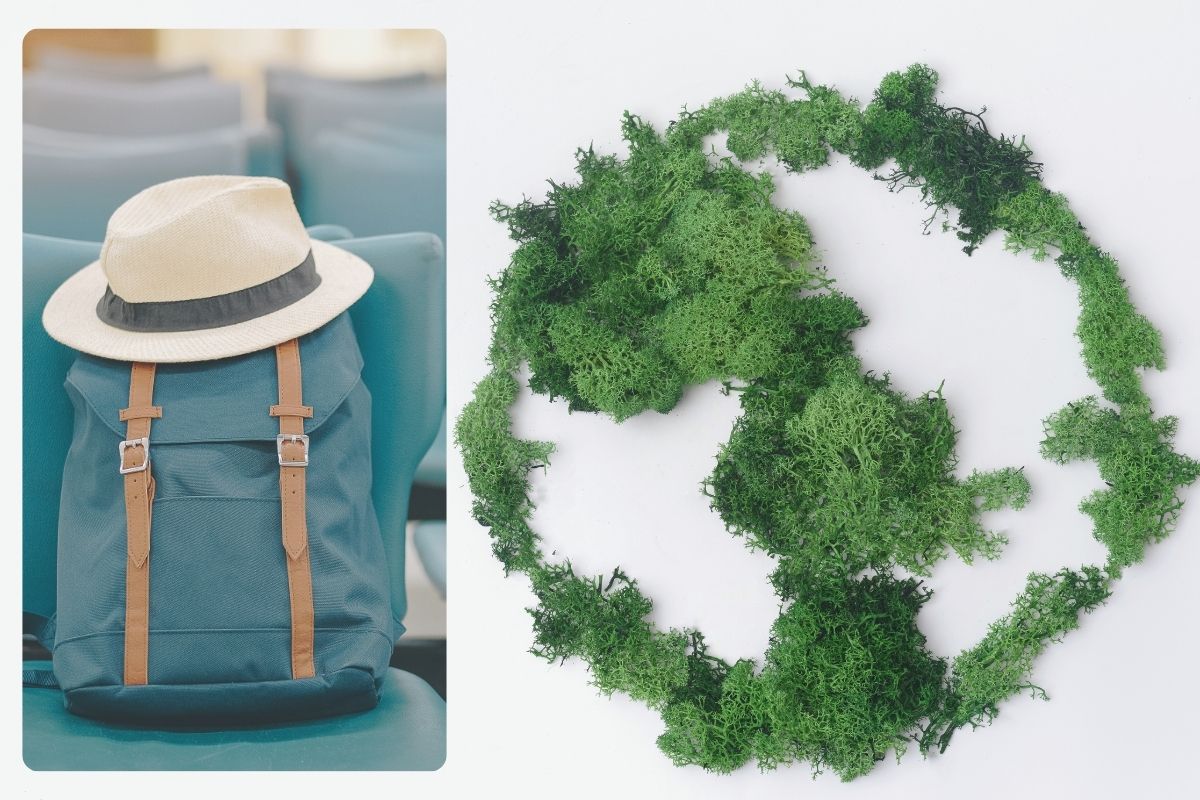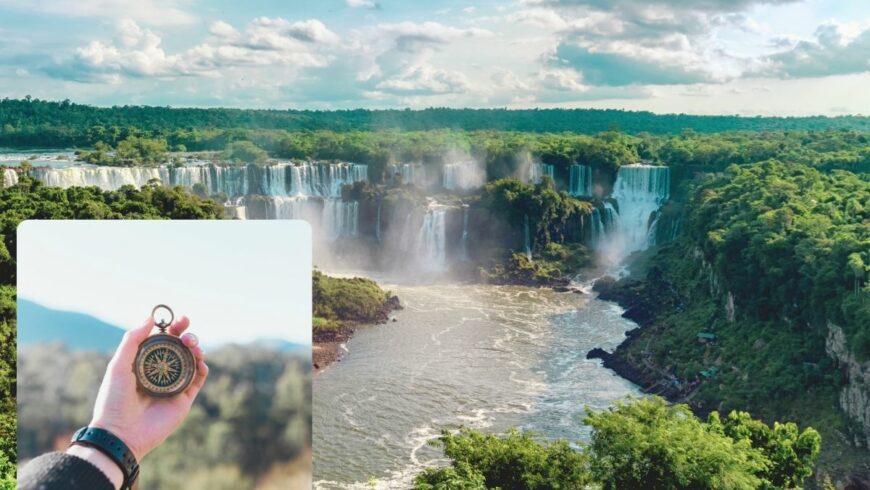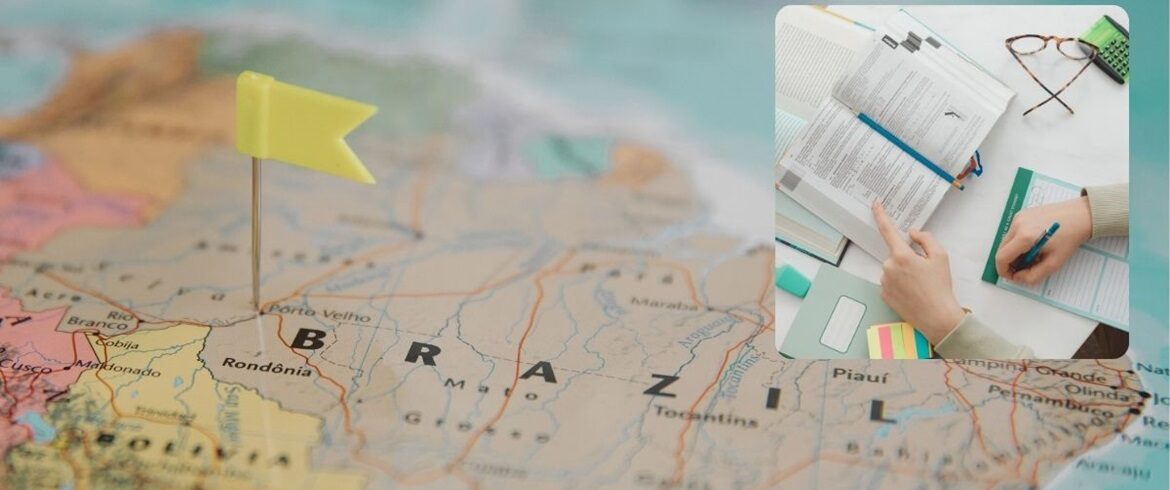Have you ever considered working, living, and studying in a foreign country and also doing so in a responsible and sustainable manner? If so, and you are looking for a country full of biodiversity and natural resources conservation, Brazil might be a good option. In this article we are going to explain why.
Brazil as a Study Abroad Destination
Brazil is known for more than just its parties. It is also known for its attempts to protect biodiversity and the environment. With a vast green land, this tropical paradise is known for the amazing Foz do Iguacu and other less known spots that have a rich environment, which also demands a great effort of preservation. This preservation is mostly backed up by universities and study groups, supported by big companies that use Brazilian natural resources and are always looking for new students that could carry on their studies.
There are also some cities in Brazil that are known for being eco-friendly and demanding more attention from their authorities to sustainability matters. They expect to attract local and international students that are qualified for studying or carrying out research.
Gustavo Moura, a teacher, clarifies: “No Brasil, precisamos de estudantes dedicados de diferentes áreas, que sejam qualificados e estejam sempre em busca de aprendizado. Por exemplo, estudantes que tenham interesse e tempo para fazer uma monografia nas normas da ABNT e participar de projetos práticos, não apenas 3 dias da semana, e que possam fazer um TCC rápido e relevante para sua área de estudos. Para estudantes de outros países que ainda não conhecem alguns tipos de trabalhos acadêmicos e normas de formatação do Brasil, há recursos disponíveis nas universidades e em outras plataformas online, como blogs, incluindo o da Studybay Brasil”. In short, he emphasized the need for dedicated and qualified students who are eager to learn, have time to complete a monograph following ABNT standards, engage in projects beyond just 3 days a week, and quickly finish a thesis, with resources available for international students unfamiliar with Brazilian academic standards.

Packing Sustainably: Essential Eco-Friendly Gear
If you are considering studying abroad in Brazil, you should know that preparation for success starts before you go. You can achieve better results if you are prepared for the task, this rule works in this situation, too. Travel can be made less damaging for nature if you plan well and try to pack smartly to have proper gear.
According to iKounselor, with the aviation industry responsible for 2.5% of global carbon emissions, choosing direct flights and airlines that invest in biofuels can significantly lessen your travel impact. Since plastic production contributes 3% to carbon emissions, opting for durable, reusable travel items — like eco-friendly luggage and stainless-steel water bottles — can help minimize waste and protect our oceans.
Additionally, for a better enjoyment of the whole experience, you will need some equipment that will last. The general rule is to only bring with you what is required, especially when it comes to bulky equipment. The basics are often the most important part. Getting them right can help to avoid a lot of headaches. For example, a quality travel bag, a capsule wardrobe, and comfortable footwear are excellent choices for those seeking mobility. Also, zero-waste travel kits are essential for environmentally conscious students.
Additional items that could be on your packing list if you go to Brazil are:
- Sustainable toiletries
- Reusable bags
- Cloth napkin
- Lunch boxes
- Boots
- Umbrella
Among other items, these are essential.

Green Dorms: Hacks for Sustainable Living Abroad
There are a few other tips that may help students in their day-to-day lives when they are living in a foreign country. With that in mind, we brought you some of them that not only cut the living expenses but also help you in the development of a greener experience overall.
- For energy conservation: There are some tips that are used for cutting down on electricity. Oftentimes, living in a shared house or dorm reduces the electricity and other resources used. Additionally, a moderate use of AC or opting for a fan is common advice.
- For water conservation: Brazil has some water conservation policies that should help you reduce the usage and expenditure. Checking for leaks in your faucets and limiting the shower time are widely-known practices.
- Sustainable décor: While you might want to decorate your new room and make it cozy, buying stuff at local markets, second-hand shops and smaller stores that sell art made from recyclables is an eco-friendlier option than opting for chain stores.
Low Impact Transportation
Brazil does not have strict rules about the transportation, but there are some ways to improve its usage, such as:
- Public Transport: Which every city in Brazil has, and for a smaller price than private transportation.
- Cycling: Brazil’s favorite way of transport, also known locally as “Magrela”. It is also comfortable, as there are tons of bicycle lanes on the street.
- Walking Option: If you are not a fan of cycling, it is also possible to walk everywhere in Brazil because there are tons of public spaces that are focused on people’s leisure time.
Using these modes of transportation is going to help you not only save some money but also protect the planet. Using more sustainable transportation options is essential because it can help improve the air quality and other indicators.

Exploring Your Host Country Responsibly
Brazil has a few hotspots that can help the students improve their daily life and support their efforts in nature preservation, too. These places focus on a better understanding and appreciation of nature to minimize negative impacts on the environment.
We listed below some activities that can be done in eco-friendly places while contributing to their money intake and conservation efforts.
- Amazon Rio Negro Expedition (Amazon Black River);
- Tijuca Forest (Floresta da Tijuca);
- Brazilian Iguaçu Falls (Cataratas do Iguaçu);
- Tijuca National Park (Parque Nacional da Tijuca);
- Jau National Park.
These places are highly renowned not only for their focus on minimizing damage but also for their dedication to conservation efforts, ensuring their preservation for future generations.
In addition to this, there are numerous adventures to be had in Brazil, such as discovering the best travel or hiking options, which not only contribute to the enhancement of the regions but also require a commitment to a holistic understanding of nature.
If you are thinking about traveling to Brazil for a short amount of time, you should give some thought to the possibility of staying in eco-friendly homestays that are committed to making the future better for everyone through the efforts that they put out.
Brazil is an excellent destination for studying abroad and experiencing a more vibrant ecosystem. Not only does this country boast numerous conserved areas, but it also needs a large number of students who can contribute to their future conservation efforts and projects. Given this, it is crucial to understand the necessary steps to promote the preservation of the nation and the sustainable use of its resources.
Resources:
- Abramovay, R. (2019). Amazônia: Por uma Economia do Conhecimento da Natureza. São Paulo: Editora Elefante.
- SDGs Review. (2023). “Green Living and Sustainable Practices in Brazil.” Lifestyle Journal, 12(3), 1563.
- Oliveira, J. A. (2015). “Desenvolvimento sustentável e sustentabilidade do turismo: conceitos, reflexões e perspectivas.” ResearchGate
- AIPH – International Association of Horticultural Producers. (2022). “São Paulo, Brazil – Environments Programme.” Green City Case Studies.
- iKounselor. (2024). “Study abroad sustainably: travel tips for eco-conscious students”
